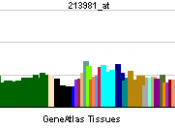Option 1: 'Altruism Gene' Associated With Higher Willingness to Donate, Researches Find
Based on the article, 100 study subjects were paid for an assigned task and asked to decide if they wanted to donate their earnings. Prior to the test, they were asked to undergo a cheek swab. The DNA extracted from the study subjects' cheek swab was analysed for the COMT gene which contains the construction manual for an enzyme which renders dopamine inactive. Dopamine is responsible for the social behaviour in animals and humans and is linked with positive emotionality. COMT gene is known as two variations - COMT-Val and COMT-Met, which has equal occurrence in the population. However, COMT-Val works more effectively. Students with the COMT-Val gene donated twice as much, confirming that there is a correlation between the gene and altruism deeds.
The key assumption that the researchers established is that individuals found with COMT-Val gene has a higher tendency to donate more money as compared to individuals found with COMT-Met gene.
The claim suggest that based on a single gene, it is enough to determine its influence on the altruistic behaviour of an individual.
The strength of the claim lies with the fact that it is supported by studies that have shown that the two genetic variant were only differentiated by a single block. The frequency of both variant is similar but for individuals with the variant of COMT-Val, the associated enzymes works up to four times more effectively as compared to COMT-Met as reported in the article. (University of Bonn, news release, Nov. 8, 2010) When such claims are supported by scientific findings, it is difficult to refute the stand that it has proven.
The weakness of the claim is that there are other variables/factors ignored...


